2018全球化和工业化论坛
通过整合全球价值链推动结构变革
(来源:联合国工业发展组织官微平台 2018-6-20)
全球著名的政策专家、学者、以及高级别参会人员和决策者汇集维也纳国际中心,参加2018全球化和工业化论坛,探讨全球价值链推动结构变革的潜力。
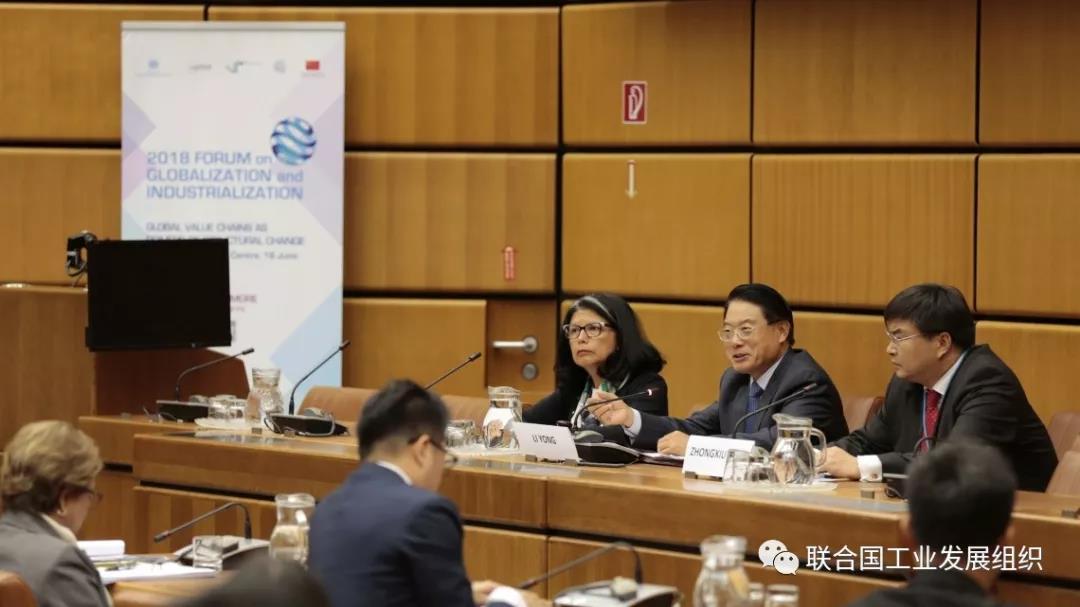
参与全球价值链为企业进入国际市场,吸收新技术并迅速扩大规模经济提供了重要的机会。然而,进入全球价值链的技术要求比以往任何时候要求更高,并且存在着发展中经济体仍然被困在价值链低附加值的活动中的实际风险。
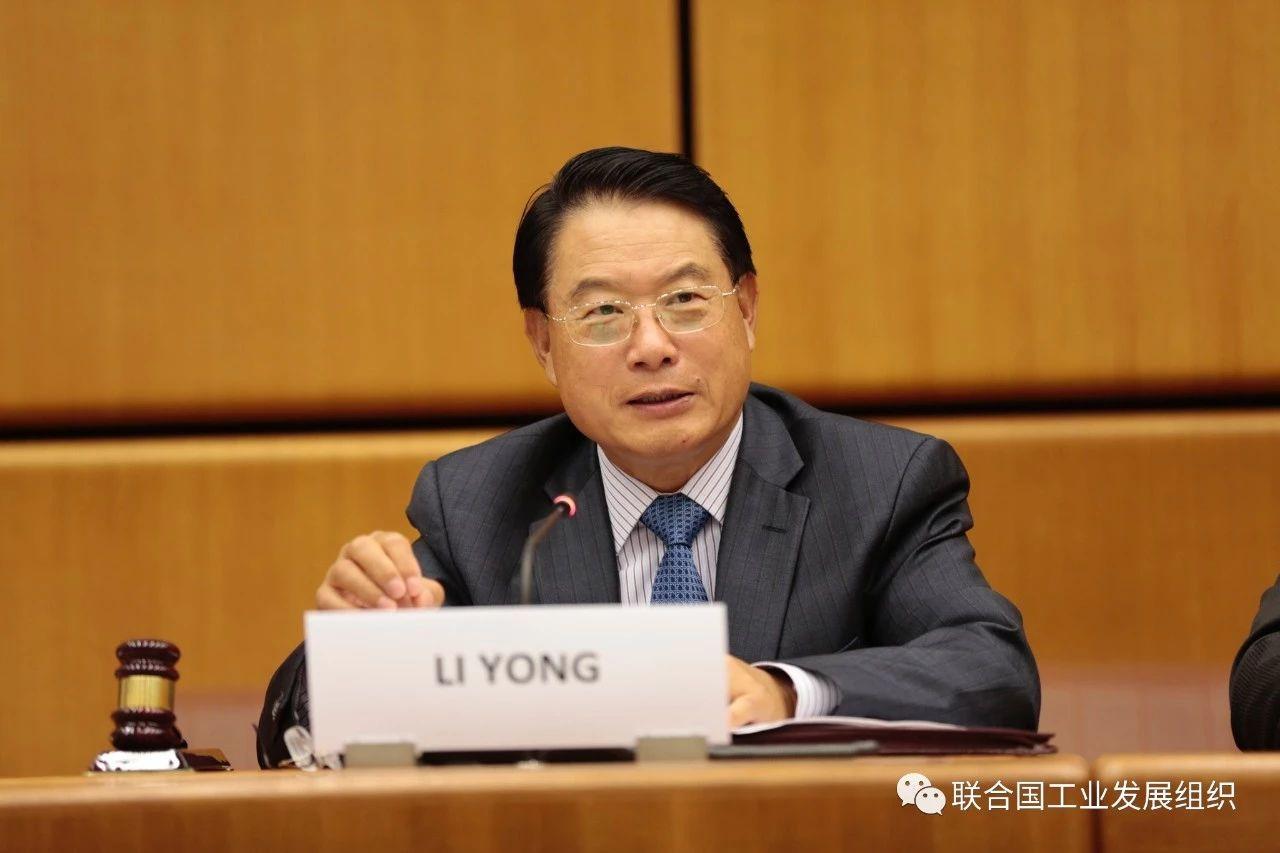
工发组织总干事李勇在开幕式上指出:“为基础广泛的经济发展利用全球价值链的潜力需要积极和有目的的政策。它还需要了解不同地区和行业的全球价值链特点和动态。”
与会者探究了全球价值链如何促进包容性和可持续发展,以及处于不同发展阶段的国家如何确保其参与到价值链中。
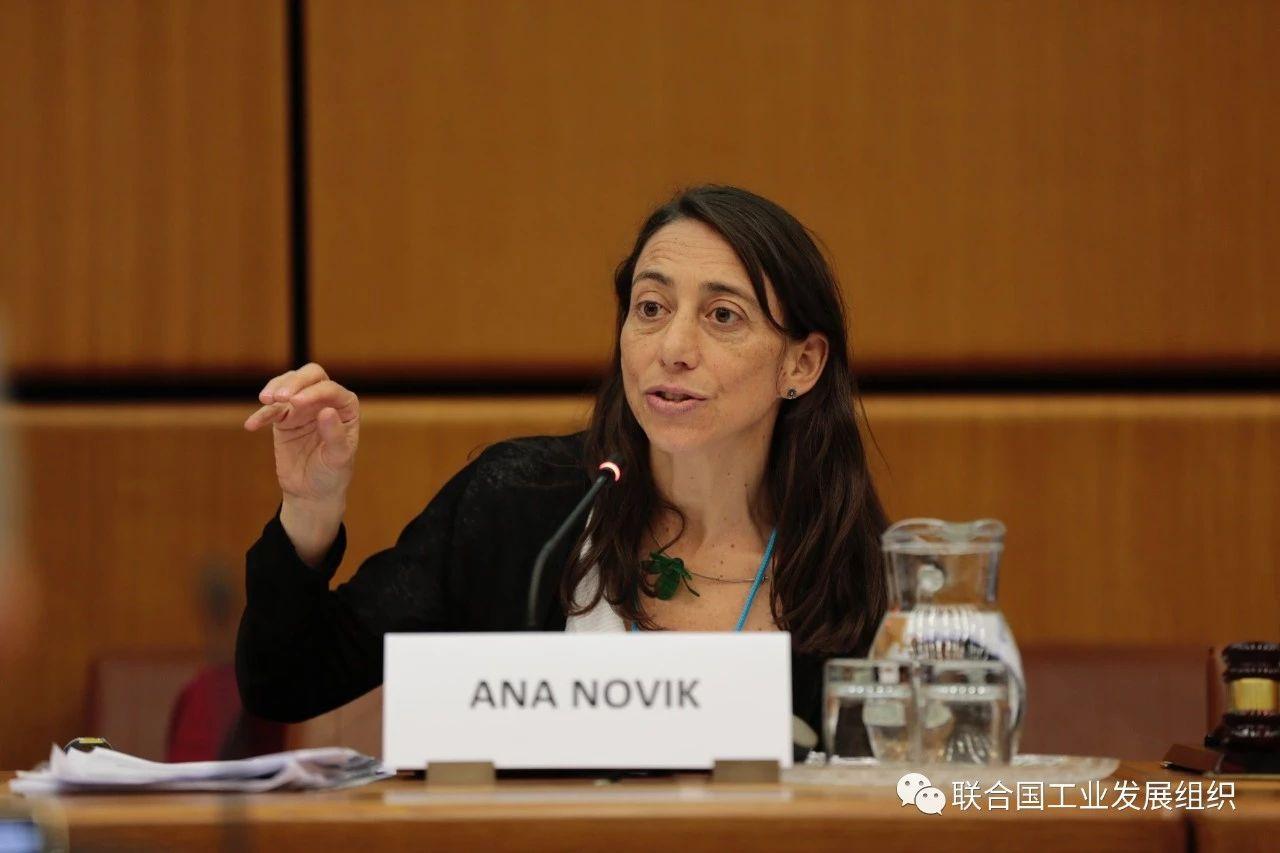
经济合作与发展组织投资科科长Ana Novik说:“供应链网络是外商直接投资(FDI)驱动的可持续工业化的关键渠道。参与外商直接投资的公司比没有参与的更具生产力和可持续性。因此,东道国中小企业可以通过知识和技术转让与外国跨国企业建立供应链联系”。
会议还讨论了为基础广泛的经济发展利用全球价值链潜力的政策挑战和选择。
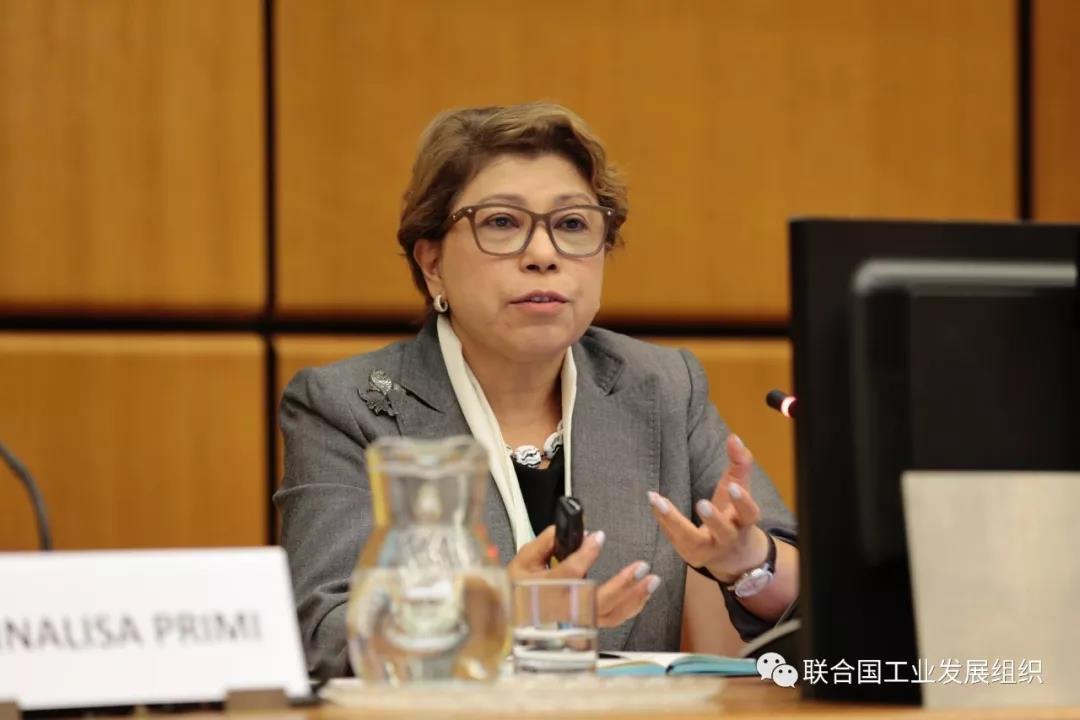
东盟与东亚经济研究所高级政策研究员Rebecca Fatima Sta Maria说:“政府和决策者必须对参与全球价值链有全面对认识。这些政策不应仅仅关注国内需要做的事情,还应通过贸易和投资协议关注国际上需要做的事情,各国政府还应审查投资政策,确保它们吸引投资,这符合其可持续和包容性发展的目标。这意味着不仅要关注环境影响,还要关注外商直接投资的社会影响。”
CX技术公司董事长Albert Ting补充说:“东亚的成功发展模式可以被其他国家完善和使用,以更好实现包容和可持续工业发展,消除贫困。”
在论坛期间发布了两个新的工发组织报告:“全球价值链和工业发展:来自中国,东南亚和南亚的经验”以及“促进包容性和可持续工业发展的结构变革”。
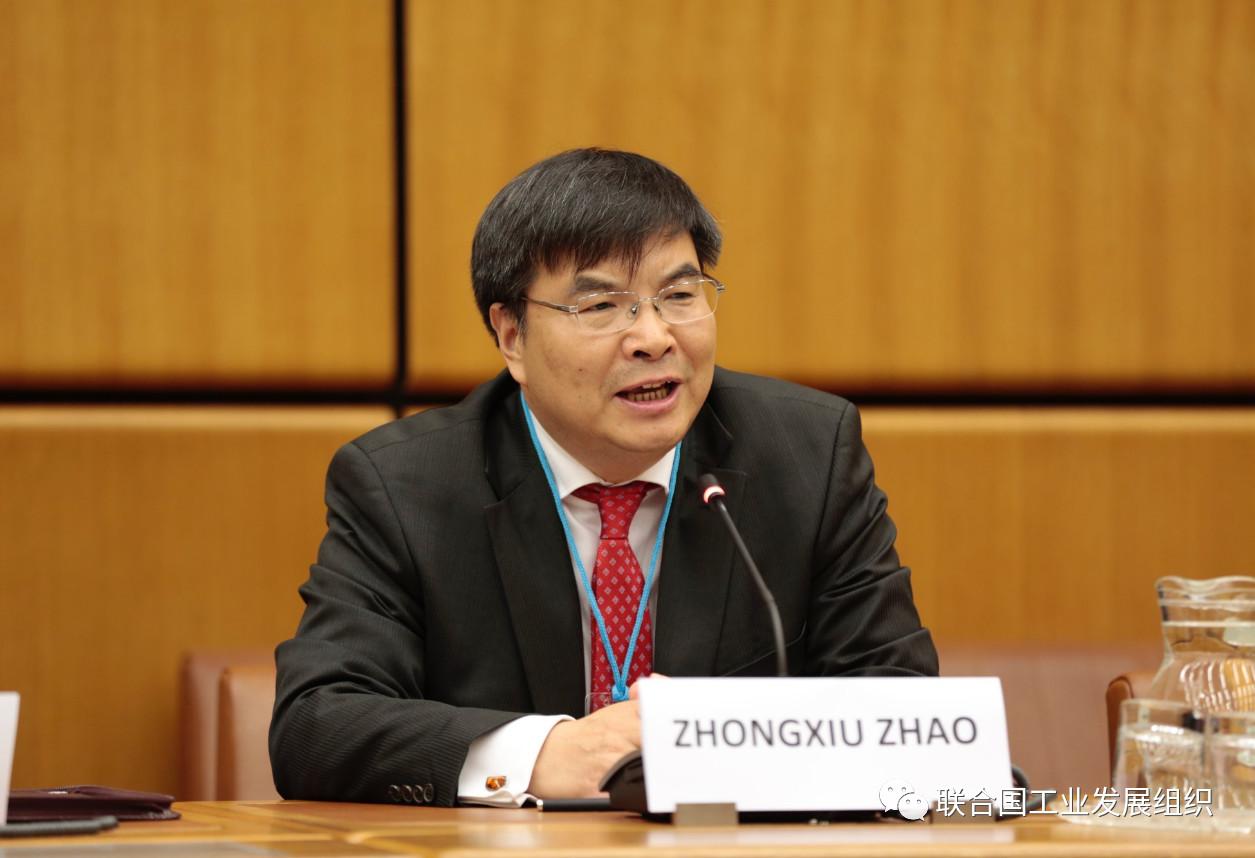
中国对外经济贸易大学副校长赵忠秀指出:“发展中国家和新兴经济体尽其所能参与全球价值链并为全球经济增长做出贡献。这份联合研究报告为如何更有效融入全球价值链提供了政策建议。”
该论坛在中国的资金支持下,由工发组织,基尔世界经济研究所与对外经济贸易大学合作举办。

VIENNA, 18 June 2018 – World-renowned policy experts and academics, as well as high-level practitioners and policymakers came together today for the 2018 Forum on Globalization and Industrialization to explore the potential of Global Value Chains (GVCs) for driving structural change.
Participation in GVCs provides important opportunities for firms to access international markets, absorb new technology, and rapidly expand their economies of scale. However, technology requirements for entering into GVCs are more demanding than ever and there is a tangible risk that developing economies will remain trapped in lower value-added activities along the value chains.
“Harnessing the potential of GVCs for broad-based economic development requires active and purposeful policies. It also requires an understanding of the characteristics and dynamics of GVCs across different regions and industries,” said LI Yong, Director General of the United Nations Industrial Development Organization (UNIDO), at the opening.
The participants looked into how GVCs can lead to inclusive and sustainable development and how countries at different stages of development can ensure their participation in those value chains.
“Supply chain linkages are a key channel for foreign direct investment (FDI)-driven sustainable industrialization. Firms that engage in FDI are more productive and more sustainable than those that do not,” said Ana Novik, Head of Investment Division at the Organisation for Economic Co-operation and Development. “Therefore, host economy SMEs can benefit from supply chain linkages with foreign multinational enterprises through transfers of knowledge and technology.”
Policy challenges and options for utilizing the potential of GVC for broad-based economic development were also discussed.
“Government and policymakers must take a holistic view of participation GVCs. The policies must not just focus on what needs to be done domestically, but also internationally through trade and investment agreements,” said Rebecca Fatima Sta Maria, Senior Policy Fellow at the Economic Research Institute for ASEAN and East Asia. “Governments must also review investment policies to ensure that they attract investments, which are aligned to their goals for sustainable and inclusive development. This means focusing not just on environment impact but also the social impact of FDI.”
Albert Ting, Chairman of CX Technology Corporation added,“The successful development models of East Asia can be modified and adopted by others to achieve better success in inclusive sustainable industrial development and poverty alleviation.”
Two new UNIDO reports, which contributed to the structure of the event, were launched during the Forum: “The Global Value Chains and Industrial Development: Lessons from China, South-East and South Asia” and “Structural Change for Inclusive and Sustainable Industrial Development”.
“Developing and emerging economies try their best to participate in GVCs and contribute to global economic growth. This joint research report provides the pathways and policy recommendations on how to integrate into GVCs and climb the ladder effectively,” said UIBE Professor and Vice-President Zhongxiu Zhao at the event.
The Forum was organized by UNIDO and the Kiel Centre for Globalization (KCG) at the Kiel Institute for the World Economy (IfW Kiel), in cooperation with China’s University of International Business and Economics(UIBE). The event was also made possible with financial support from the People's Republic of China.
附:原文报道链接